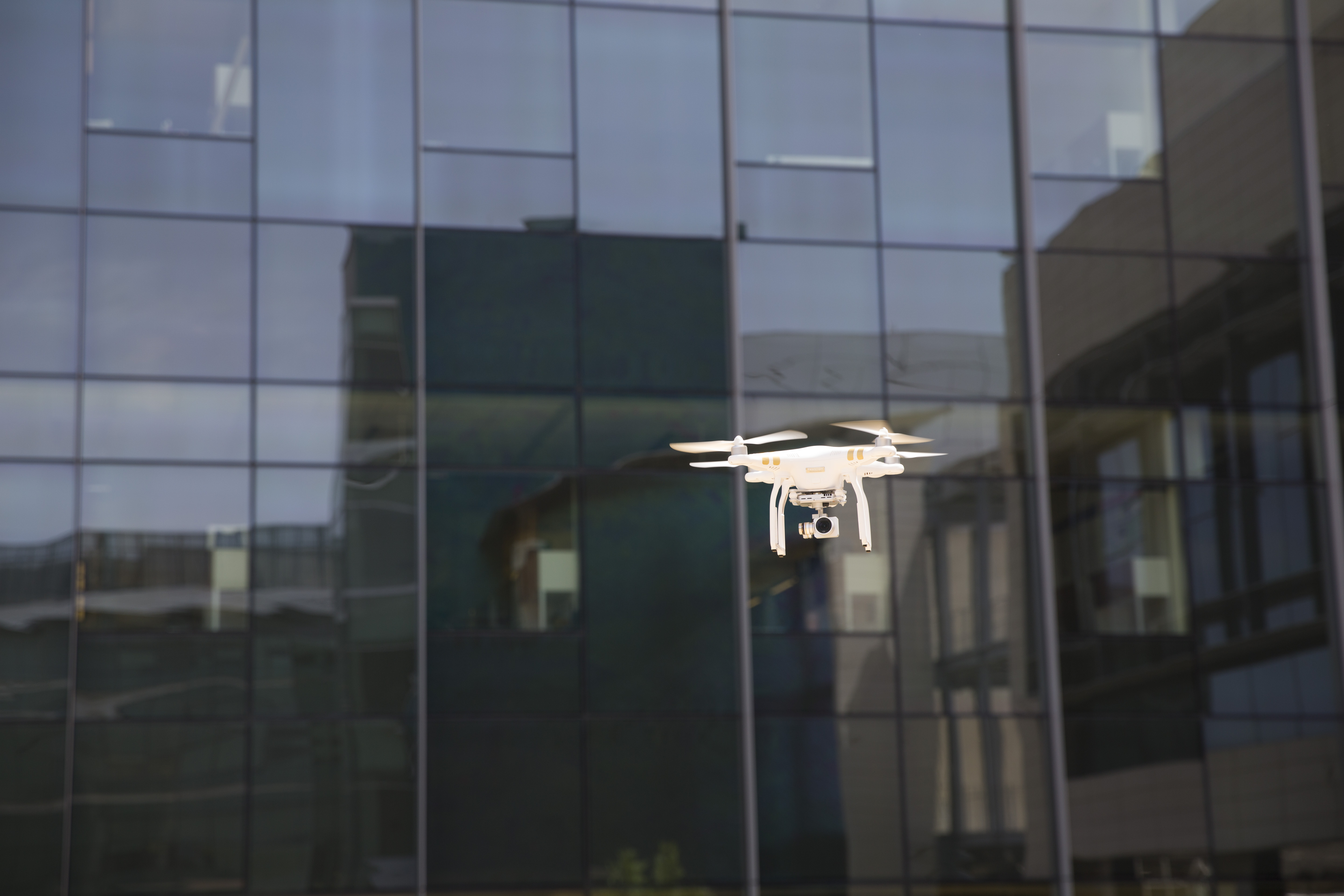Ron Poynter was first introduced to drones while working as a helicopter pilot for the military. It wasn’t until federal restrictions on civilian usage of drones — officially known as unmanned aerial vehicles — were lifted in 2012 that he began to realize their potential.
“In 2012, I was reading an article in (the New York Times) about how someone was flying a drone, and they were stopped essentially because what he was doing was illegal,” he said. “I knew that the technology was going to be very transformative.”
The FAA Modernization and Reform Act of 2012 replaced restrictions on drones and instead provided a framework to integrate them into American airspace within both private and commercial settings. Since then, Poynter and his wife, Rebecca, who graduated from UTD in 1986, launched OnPoynt Aerial Solutions, a Richardson-based company that specializes in creating drone kits for STEAM education, with the backing of UTD’s Institute for Innovation and Entrepreneurship and Venture Development Center.
“There’s an entrepreneurial spirit at UT Dallas and we really appreciate that,” Rebecca Poynter said.
The market for drones has expanded considerably since 2012 and is expected to reach a value of $100 billion by 2020, according to a recent Goldman Sachs report. Rebecca Poynter said she and her husband launched the company after seeing an opportunity to adapt the industry into learning experiences for classrooms. In 2016, the FAA recognized drone usage in educational environments as a form of recreational usage, eliminating the need for direct licensing from the agency.
“Our main customers are students, and we want them to have a great experience with drones,” Rebecca Poynter said. “It’s rewarding because the teachers are excited about the drones as a classroom experience. Students are really excited about experiencing drone technology.”
The company sells kits that allow students to build drone themselves. According to Ron Poynter, the integrative nature of the drone kits is especially helpful for younger students.
“You’ve got propellers and such, and you can talk aerodynamics. You could spend time talking about the battery chemistry and how they fly,” he said. “There’s engineering challenges you can do with them as well—a lot of different things that can add to the experience.”
OnPoynt was recognized by UTD’s Institute for Innovation and Entrepreneurship in November of last year as part of the UTDesign Startup Challenge. Rebecca Poynter and her husband won $20,000 towards the costs of further research and development. Through its relationship with the IIE, OnPoynt has access to dedicated office space and mentors.
“The foundation to support innovation is there, and we’re grateful for the opportunity to have mentors, to work with students (and) to have facilities that have all the resources that UT Dallas has provided us as we continue to grow our business,” Rebecca Poynter said.
At UTD, OnPoynt is collaborating with the School of Engineering and Computer Science to develop drone racing and gaming systems along with accompanying mobile applications for fans to watch remotely. The company works with ECS capstone students to test and demonstrate their products.
“They’ve been fun to work with,” Ron Poynter said. “We don’t have the computer science or technical background that they have, so it makes for a good team.”
Rebecca Poynter said through the development of a racing system and an accompanying mobile application, OnPoynt will use its platform to promote growth of drone clubs and racing teams on college campuses. Universities such as Purdue University and the Georgia Institute of Technology have sponsored drone-racing teams on their campuses. The inaugural U.S. College Drone Racing Championship took place last year at Purdue.
The company is currently in the process of filing patents for its technology. OnPoynt will expand its catalog to include underwater drones and autonomous terrestrial vehicles.
Additional reporting by Emaan Bangash

Leave a Reply